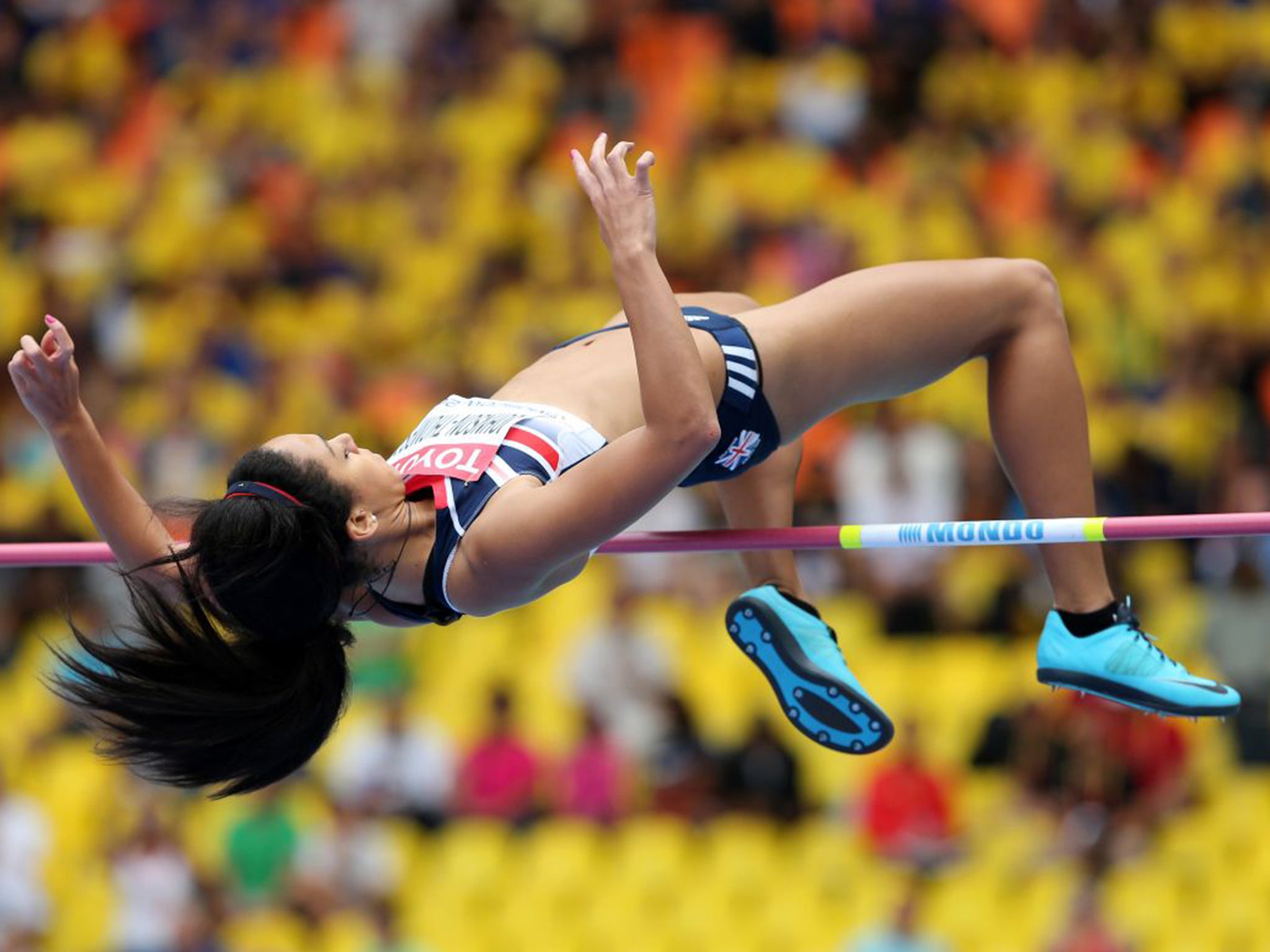Rio 2016: Time for Britain to raise the bar again and reverse the trend of host nations dipping at the next Olympics
After 2012’s golden haul Britain's athletes face a massive challenge in Rio next year

For Jessica Ennis-Hill, it will be a venue and an event that will forever define her. At London 2012 the expectation was ferocious, and billboards of the poster girl of the Games were littered across the country, but she duly delivered for a career highlight that she readily admits will never be matched.
This weekend, Ennis-Hill has been back at the Olympic Stadium for the Anniversary Games, reunited with the two other protagonists of Super Saturday in Mo Farah and Greg Rutherford – venue and athletes indelibly linked.
“I’ll forever want to go back there as it’s got so many great memories, of the gold, the crowd and everyone coming together,” she said. “Things have changed obviously and this time I have my son, Reggie, watching in the stands, which is a lot different to 2012. But I expect all the memories of Super Saturday to come flooding back.”
Ennis-Hill’s heptathlon gold was just one part of an extraordinary 17 days for British sport, when the world’s focus was on the capital, the undoubted highlight being Super Saturday when Great Britain celebrated six golds in a single day, three of which were won in 46 minutes of delirium on the track. It marked the turning of the tide at the Games. In Atlanta in 1996, Britain had come back with a solitary gold, Steve Redgrave and Matthew Pinsent leading the charge in the coxless pairs rowing to avoid the ignominy of a total blank.
After all those dark days, when London was awarded the Games amid much fanfare in Singapore in 2005 the focus was on ensuring a truly golden Games with the finances to boot.
It led to 19 golds and 47 medals in all at the preceding Olympics in Beijing in 2008, and four years on the outcome exceeded all expectations with 29 golds and a total of 65 medals to finish behind only the United States and China in the medal table.
Ten British Gold Medal Prospects At Rio 2016
Show all 10To put that into context, it was the same number of golds as traditional rivals Germany (11), France (11) and Australia (seven) combined.
All the evidence suggests that a Games perpetually elevates the hosts and backing that up four years later is a near mission impossible.
Of the last five hosts, all of their medal counts have dipped – although the United States were still table-toppers four years on from Atlanta but with seven less golds and eight medals fewer in all, while Australia went from 16 golds and 58 medals as hosts to 17 golds and 50 medals at the subsequent Olympiad.
Greece exceeded all expectations as hosts with six golds and 16 medals in 2004, only to disappear without a trace four years on and drop 43 places in the medal table with four medals in all and not a single gold.
As hosts, China came out on top with 100 medals of which 51 were gold. That translated to 38 golds and 88 medals in London.
When Bill Sweeney took over as CEO of the British Olympic Association in October 2013, he made it clear that his ambition was to attempt to exceed what Britain did in London 2012 and UK Sport made a record £347 million available in December 2012 in that quest.
But as things stand, the data and intelligence company Infostrada has predicted that Team GB can expect to tumble down the medal table from that remarkable third.
Infostrada estimates that Team GB will end up ninth in the standings in a little over a year’s time with nearly a quarter of that gold-medal haul from last time, in this case eight, and 43 medals in total – a considerable drop in one Olympic cycle.
Track cycling, which accounted for seven golds in 2012, appears to have had an alarming dip with just three silver medals at this year’s World Championships. Meanwhile, rowing and athletics were the next highest-ranked sports in terms of golds at the last Games with four apiece, and the evidence would suggest a similar level a year out from Rio.
In contrast, British swimming seems to have risen like a phoenix from the flames, from a paltry silver and two bronzes at the 2012 Olympics to be in genuine medal contention across the board in Rio.
As the clock ticks ever further from London 2012 – the opening ceremony was three yeas ago tomorrow – the former rower Mark Hunter argues that repeating the events of three years ago is impossible.
Hunter, who won silver on Super Saturday with Zac Purchase in the lightweight double sculls, recalls: “London was bigger and more explosive than any of us athletes quite realised. The whole think just exploded.
“The thing is at home, you’re in this special bubble where everything around you is just for you, it’s so positive. Most people didn’t know who I was but I was in a GB kit so it didn’t matter, they’d cheer you on.
“That for me didn’t bring pressure, it was simply a massive boost, and that’s not there in Rio de Janeiro.”
Subscribe to Independent Premium to bookmark this article
Want to bookmark your favourite articles and stories to read or reference later? Start your Independent Premium subscription today.

Join our commenting forum
Join thought-provoking conversations, follow other Independent readers and see their replies